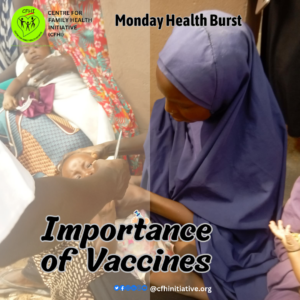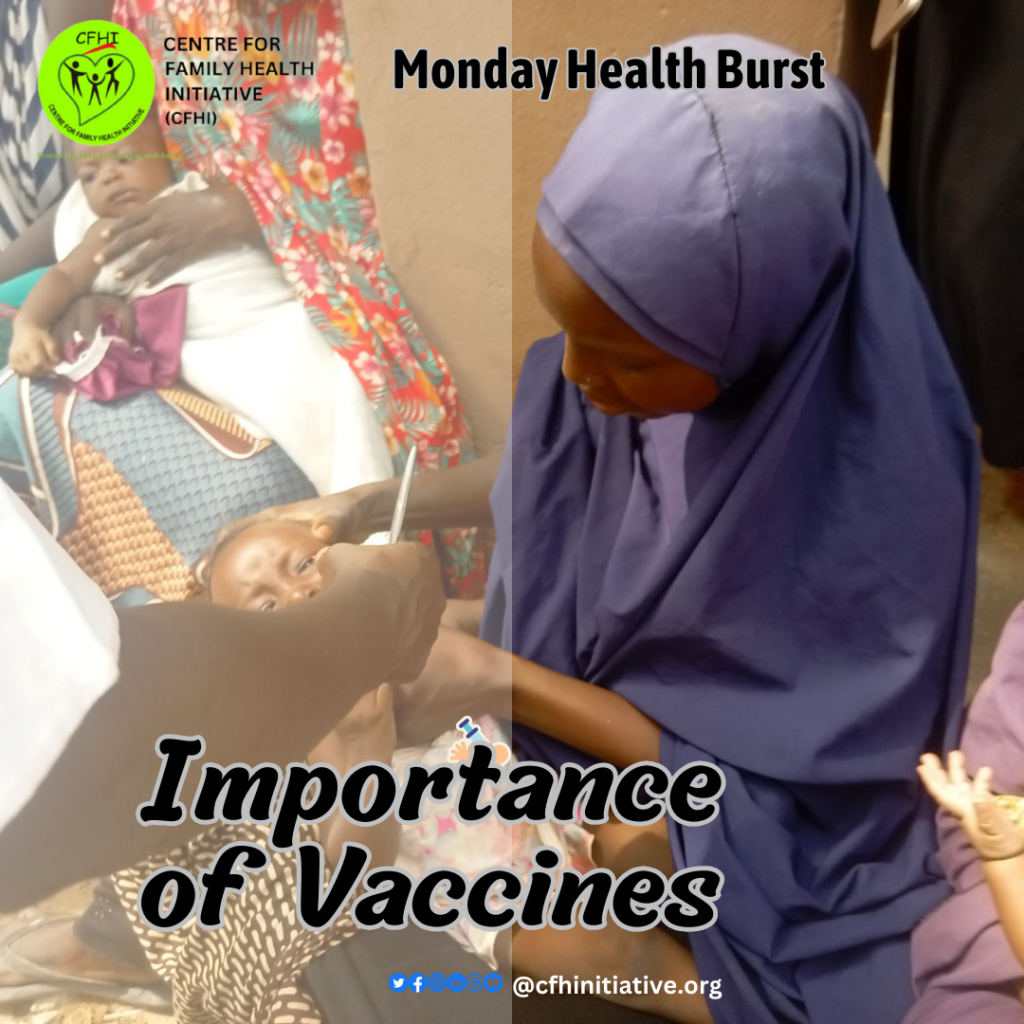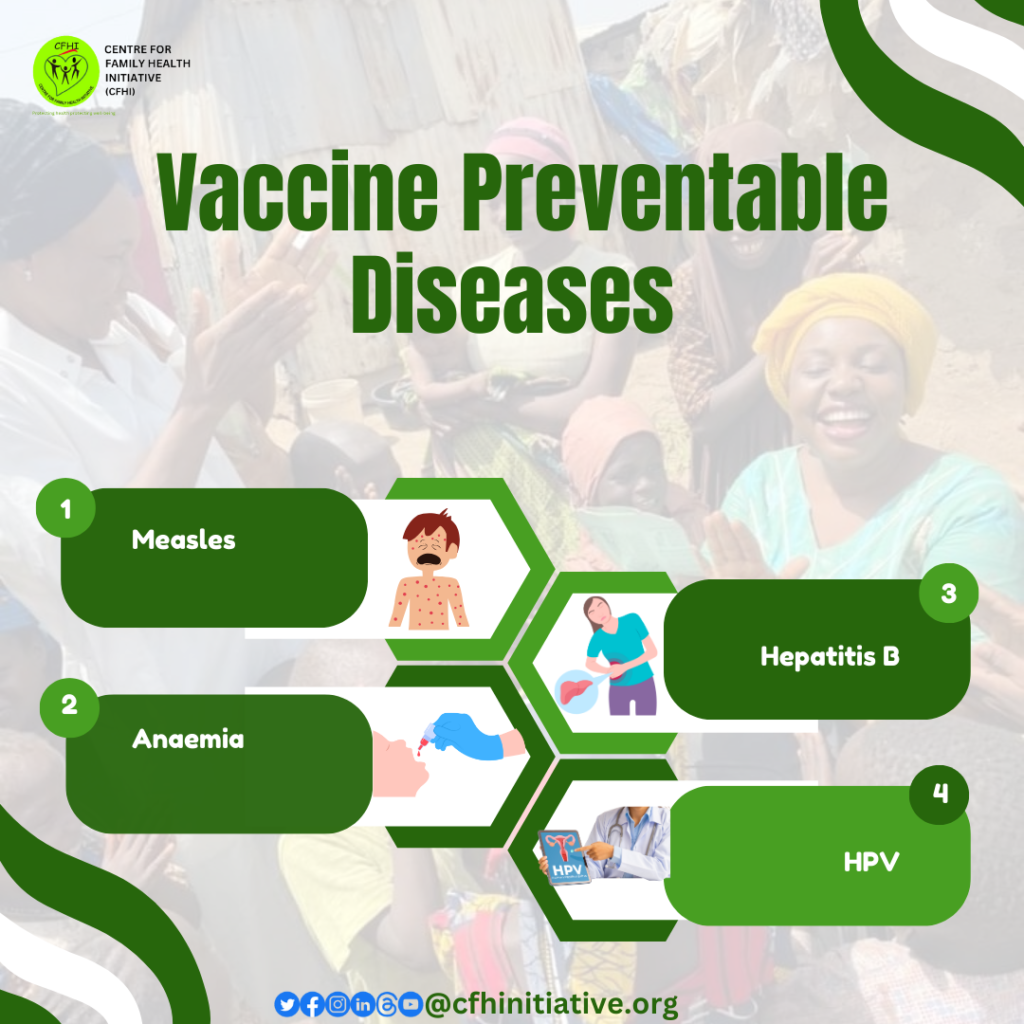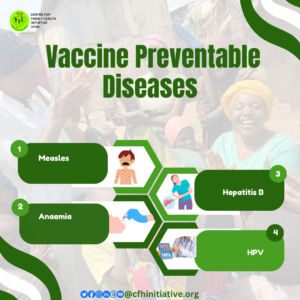IMPORTANCE OF VACCINES
Vaccines are one of the most effective tools we have to prevent infectious diseases and safeguard public health. They have played a crucial role in reducing the burden of numerous illnesses, preventing millions of deaths globally, and improving overall quality of life.1 Despite their proven benefits, there can be misconceptions and hesitancy surrounding vaccines. Understanding the importance of vaccines is essential for promoting individual and community well-being.
1. Disease Prevention
Vaccines are designed to stimulate the immune system to recognize and fight specific pathogens, such as viruses or bacteria. By receiving a vaccine, the body can develop immunity against these pathogens without experiencing the full-blown disease. This process not only protects vaccinated individuals but also helps to prevent the spread of infectious diseases within communities.
2. Eradication and Control of Diseases
Historically, vaccines have been instrumental in eradicating or significantly reducing the prevalence of infectious diseases. For instance, smallpox was eradicated globally through vaccination efforts, and diseases like polio and measles have been controlled in many parts of the world due to widespread vaccination campaigns.
3. Protecting Vulnerable Populations
Vaccination is especially important for vulnerable populations, including infants, elderly individuals, and those with weakened immune systems. These individuals are at higher risk of severe complications from vaccine-preventable diseases. Vaccinating a significant portion of the population creates “herd immunity,” which helps protect those who cannot be vaccinated due to medical reasons.
Angwan Guragu, Karonmajiji, locally known as Unguwar Guragu, translating to “a community of disabled people,” comprises of closely packed shanties accommodating over 500 vulnerable inhabitants with diverse disabilities. On April 25, in commemoration of World Immunization week 2023, Centre for Family Health Initiative (CFHI) partnered with the Primary Healthcare Center in Angwan Guragu, Karonmajiji to conducted a comprehensive program that included awareness sessions, immunization, and vaccination services aimed at addressing the healthcare needs of this population comprehensively, with a focus on prevention, education, and empowerment, ultimately leading to improved health outcomes and quality of life for this vulnerable group. Over 50 individuals, including both adults and children, benefited from this initiative, ensuring they received essential vaccinations to protect against preventable diseases. This collaborative effort highlights the importance of community engagement and healthcare partnerships in promoting immunization and safeguarding public health.
4. Prevention of Outbreaks
Vaccines play a critical role in preventing disease outbreaks. When vaccination rates decline, as seen in certain communities with vaccine hesitancy, outbreaks of vaccine-preventable diseases can occur. Recent measles outbreaks in various parts of the world highlight the consequences of falling vaccination rates.
5. Cost-Effective Public Health Measure
Vaccination programs are highly cost-effective compared to the costs associated with treating infectious diseases. Vaccinating individuals against preventable diseases reduces healthcare expenditures related to hospitalizations, treatments, and long-term care for complications.
Vaccines are a cornerstone of public health, saving countless lives and preventing widespread suffering. Emphasizing the importance of vaccination through education, access to vaccines, and strong public health policies is essential for protecting individuals and communities from infectious diseases. By ensuring high vaccination rates and addressing vaccine hesitancy, we can continue to reap the benefits of vaccines and build healthier societies.
Join CFHI’s “Monday Health Burst” initiative on all social media platforms for weekly discussions on basic health concern.
References.
https://www.who.int/health-topics/vaccines-and-immunization#tab=tab_1
https://www.cdc.gov/vaccinesafety/ensuringsafety/history/index.html

IMPORTANCE OF VACCINES Read More »




